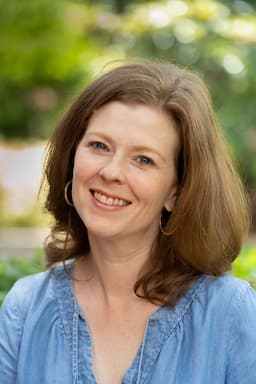But I Don’t Want to Forgive — Vaneetha Risner
She asks me about forgiveness.
I look up into her tear-filled eyes and know she isn’t looking for canned advice. She wants real help, honesty, depth.
I shift uncomfortably in my chair. This is a hard topic to talk about without sounding preachy. I want to be sensitive and I’m not sure what to say.
Glancing over at me, she asks “So what was it like for you to forgive? Why did you do it? Was it hard? And was it worth it?”
My mind scans all of the offenses I’ve forgiven. They have ranged from small–not being invited to a friend’s party. To medium- dealing with an insensitive and critical relative during a painful struggle. To huge – burying my infant son due to a doctor’s careless mistake. Or losing the marriage that I thought would last a lifetime.
I know she is referring to a specific offense that I’ve had to forgive, that I’m still in the process of forgiving, but there is a commonality to all the offenses against me. They have all hurt. Some superficially, some deeply, some permanently.
I take the questions one by one, trying to be as transparent as I can.
Why did I forgive?
I begin slowly, choosing my words carefully.
“To be honest I didn’t want to forgive. I never do. But the Bible tells us to forgive if we want to be forgiven. And forgiving those who wrong us brings glory to God. It shows the world Jesus.
“But forgiving has also helped me. When I carry around anger and bitterness over what someone has done, it eats at me, and almost controls my life. It’s almost like the bitterness follows me everywhere.
“I hate to admit it, but I take a twisted pleasure in replaying the offense, getting mad, being the victim. I’m entitled to those feelings- small consolations in the face of the injustices I’ve endured. But I know this pleasure is really poison. Poison that I am pouring into a gaping, already painful wound. That poison makes the wound fester, so I’m worse off than I was at the start. I’m in more pain, while the person who hurt me doesn’t even know, or care.
“I have found forgiveness is like a balm. It lets me heal. Keeps the wound clean. Enables me to move on.”
She looks at me. “I guess that makes sense. But it seems impossible when I look at my situation. Forgiving is too hard.”
I understand. What I’m saying is radical. It seems crazy for the victim to do this. But I forge ahead.
“I agree, it’s impossibly hard. The first step of forgiveness feels like death. I need Christ to help me. Or else I can’t do it.
“Personally, I want to hold onto my pain and rehearse everything that has been done to me, in case I forget it. I enjoy self-pity. I feels its my right- a small consolation in light of what’s been done. It’s easy to justify my coldness, my rage, my detachment to the person who has hurt me. They deserve to be punished- it’s their fault, not mine.
“What’s even harder is that the other person can’t know how much they have hurt me. They may understand part of it, but they don’t live inside my head to know the depth of my pain.”
She’s pondering what I’m saying, taking it all in.
After a minute, she says, “It’s not so much that I enjoy being mad. It’s more that forgiving him feels like I’m saying that he didn’t hurt me or that I’m over it. Or even that I’m thinking what he did wasn’t that bad. How can I forgive something that has cost me so much? Forgiving him seems unfair.”
I glance over at her. I get that. It feels colossally unfair.
“I know how you feel. But forgiving really isn’t saying that it’s okay. It could actually be saying the opposite. It could be implying that what he did was so bad that there’s nothing he could do to make up for it. And that is why he needs forgiveness. Because he could never make it right himself.
“That’s the message of the gospel. God did not forgive our sins because they were trivial. Our sins were monumental. And we could never make up for them.
“In the Bible, God’s forgiveness involves the shedding of blood. Forgiveness requires death. Forgiveness is costly.
“A friend once said told me, ‘We are never as much like Christ as when we are willing to suffer for the sins of others.’
“And so for us to forgive is costly too. It involves another type of death. Dying to self. Dying to our rights. Dying to what we want.”
She looks down at the floor. “I guess forgiving isn’t saying what they did was trivial. But even when I start to think about forgiving, new things keep coming up.”
I know that feeling well. This time I look directly at her.
“For me, forgiveness is a process that begins with a decision. A deliberate choice to forgive. But it’s rarely a one-time event, never to be revisited. New offenses arise, memories resurface, unintended consequences develop. They all need to be dealt with. Every time I am reminded of the sin against me, I can choose to rehearse it- strengthening its power over me, or release it- weakening its power.
“This has been the key to forgiveness for me. It’s a daily choice. It’s refusing to dwell on the sin but rather surrendering it to God. It’s praying for the person who hurt me, and praying for myself in the process. It’s asking God to take away my bitterness whenever I recall the offense. It requires work and vigilance. But it gets easier every time I do it.”
I feel like I have talked too much. I need to be quiet. Listen. But then I remember her last question: Was it worth it? Am I glad I did it?
This question I can answer with certainty.
“Even though the process felt like death, in the end, it was more than worth it. God did immeasurably more than I could have asked or imagined. Forgiveness unleashed God’s power in my life in an unparalleled, astonishing way. It continues to be the most life-changing, life-giving thing I have ever done, apart from committing my life to Christ. Forgiveness transforms me. Deepens my prayer life. Gives me inexplicable joy. And sets me free.
In other words, when I forgive, I die so that I can truly live.”












